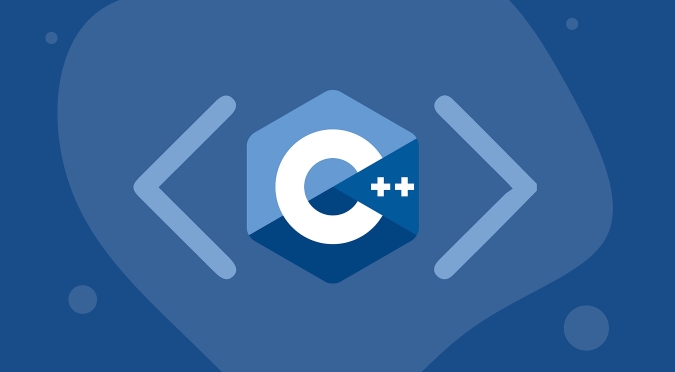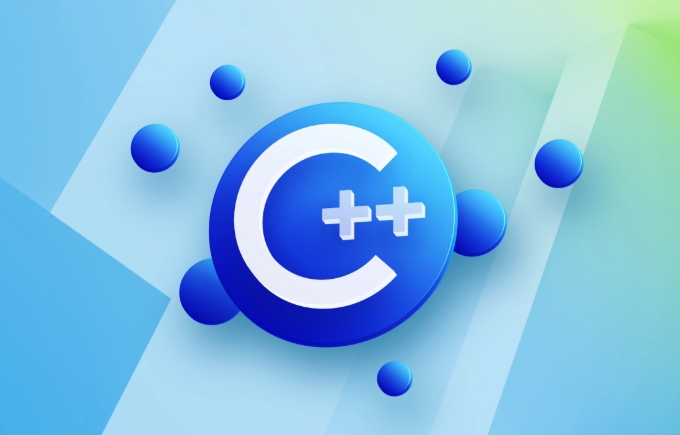To create a DLL or static library, you need to select a template first and then export the function. Steps: 1. Select the Static Library (.lib) template to create a project, add the .cpp/.h file, and compile and generate .lib; 2. Select Dynamic-Link Library (DLL) for DLL, use __declspec (dllexport) to export the function or .def file definition, and generate .dll and .lib; 3. When using it, copy the .lib and header files to the new project, and the configuration includes path and link dependencies. DLL also needs to place .dll in the same directory or system path as the executable file.

If you're working with C and want to organize your code into reusable modules, creating a DLL (Dynamic Link Library) or a static library is the way to go. Both have their use cases — static libraries get linked directly into your executable, while DLLs are loaded at runtime and can be shared across multiple programs. Let's walk through how to create both using Visual Studio, since that's one of the most common environments for Windows-based C development.

Setting up a Static Library Project
To start building a static library (.lib file), you'll need to set up a new project in Visual Studio:

- Open Visual Studio
- Choose Create a new project
- Select Static Library (.lib) under the C templates
- Name your project and click Create
Once the project is created, you'll see some boilerplate files. You can add your own .cpp and .h files just like in a regular application. The key difference is that instead of producing an .exe , this project will compile into a .lib .
Important:
Make sure all functions or classes you want to expose are defined in header files and implemented in .cpp files. Since it's a static library, everything gets compiled into the lib, and users of the library will include your headers and link against the .lib during their build.

You don't need any special syntax unless you're dealing with templates or inline functions that must reside in headers.
Creating a DLL Project
A DLL works a bit differently because it's meant to be used at runtime by one or more applications. Here's how to create one:
- Open Visual Studio
- Choose Create a new project
- This time select Dynamic-Link Library (DLL) from the templates
- Name and create the project
Visual Studio gives you a sample dllmain.cpp which handles entry points but usually doesn't require changes. You'll also get a .def file or a header where you can define exports.
Exporting Functions
To make functions accessible outside the DLL, you need to decorate them with __declspec(dllexport) when building the DLL, and __declspec(dllimport) when using it in another project. A common trick is to use a preprocessor macro:
#ifdef MYLIB_EXPORTS
#define API __declspec(dllexport)
#else
#define API __declspec(dllimport)
#endifThen prefix your functions like this:
extern "C" API int AddNumbers(int a, int b);
Using extern "C" prevents name mangling and makes the function easier to call from other languages ??or tools.
You can also export functions via a .def file if you prefer not to modify the source code, but that's less common these days.
Using Your Library in Another Project
Once you've built either a DLL or a static library, you'll want to use it somewhere else. Here's what you need to do:
For both types:
- Copy the
.libfile (or.dll.libfor DLLs) to your new project directory - Copy the public header files as well
In Visual Studio:
- Right-click your project → Properties → VC Directories → Include directories: add the path to your headers
- In Linker → Input → Additional Dependencies: add your
.libfilename - If it's a DLL, place the
.dllnext to your executable (or in a system path)
That's basically it. Once everything is wired up correctly, you can call functions from your library as if they were part of your own codebase.
Creating a DLL or static library in C isn't too hard once you know how Visual Studio structures things. It's easy to mess up include paths, export declarations, or forget to copy the DLL, so double-check those parts. Other than that, it's mostly just writing normal C code and organizing it properly.
The above is the detailed content of C tutorial for creating a DLL or static library. For more information, please follow other related articles on the PHP Chinese website!

Hot AI Tools

Undress AI Tool
Undress images for free

Undresser.AI Undress
AI-powered app for creating realistic nude photos

AI Clothes Remover
Online AI tool for removing clothes from photos.

Clothoff.io
AI clothes remover

Video Face Swap
Swap faces in any video effortlessly with our completely free AI face swap tool!

Hot Article

Hot Tools

Notepad++7.3.1
Easy-to-use and free code editor

SublimeText3 Chinese version
Chinese version, very easy to use

Zend Studio 13.0.1
Powerful PHP integrated development environment

Dreamweaver CS6
Visual web development tools

SublimeText3 Mac version
God-level code editing software (SublimeText3)

Hot Topics
 C Polymorphism : is function overloading a kind of polymorphism?
Jun 20, 2025 am 12:05 AM
C Polymorphism : is function overloading a kind of polymorphism?
Jun 20, 2025 am 12:05 AM
Yes, function overloading is a polymorphic form in C, specifically compile-time polymorphism. 1. Function overload allows multiple functions with the same name but different parameter lists. 2. The compiler decides which function to call at compile time based on the provided parameters. 3. Unlike runtime polymorphism, function overloading has no extra overhead at runtime, and is simple to implement but less flexible.
 What Are the Different Kinds of Polymorphism in C ? Explained
Jun 20, 2025 am 12:08 AM
What Are the Different Kinds of Polymorphism in C ? Explained
Jun 20, 2025 am 12:08 AM
C has two main polymorphic types: compile-time polymorphism and run-time polymorphism. 1. Compilation-time polymorphism is implemented through function overloading and templates, providing high efficiency but may lead to code bloating. 2. Runtime polymorphism is implemented through virtual functions and inheritance, providing flexibility but performance overhead.
 C : Is Polymorphism really useful?
Jun 20, 2025 am 12:01 AM
C : Is Polymorphism really useful?
Jun 20, 2025 am 12:01 AM
Yes, polymorphisms in C are very useful. 1) It provides flexibility to allow easy addition of new types; 2) promotes code reuse and reduces duplication; 3) simplifies maintenance, making the code easier to expand and adapt to changes. Despite performance and memory management challenges, its advantages are particularly significant in complex systems.
 C Destructors: Common Errors
Jun 20, 2025 am 12:12 AM
C Destructors: Common Errors
Jun 20, 2025 am 12:12 AM
C destructorscanleadtoseveralcommonerrors.Toavoidthem:1)Preventdoubledeletionbysettingpointerstonullptrorusingsmartpointers.2)Handleexceptionsindestructorsbycatchingandloggingthem.3)Usevirtualdestructorsinbaseclassesforproperpolymorphicdestruction.4
 Polymorphism in C : A Comprehensive Guide with Examples
Jun 21, 2025 am 12:11 AM
Polymorphism in C : A Comprehensive Guide with Examples
Jun 21, 2025 am 12:11 AM
Polymorphisms in C are divided into runtime polymorphisms and compile-time polymorphisms. 1. Runtime polymorphism is implemented through virtual functions, allowing the correct method to be called dynamically at runtime. 2. Compilation-time polymorphism is implemented through function overloading and templates, providing higher performance and flexibility.
 C tutorial for people who know Python
Jul 01, 2025 am 01:11 AM
C tutorial for people who know Python
Jul 01, 2025 am 01:11 AM
People who study Python transfer to C The most direct confusion is: Why can't you write like Python? Because C, although the syntax is more complex, provides underlying control capabilities and performance advantages. 1. In terms of syntax structure, C uses curly braces {} instead of indentation to organize code blocks, and variable types must be explicitly declared; 2. In terms of type system and memory management, C does not have an automatic garbage collection mechanism, and needs to manually manage memory and pay attention to releasing resources. RAII technology can assist resource management; 3. In functions and class definitions, C needs to explicitly access modifiers, constructors and destructors, and supports advanced functions such as operator overloading; 4. In terms of standard libraries, STL provides powerful containers and algorithms, but needs to adapt to generic programming ideas; 5
 What Are the Various Forms of Polymorphism in C ?
Jun 20, 2025 am 12:21 AM
What Are the Various Forms of Polymorphism in C ?
Jun 20, 2025 am 12:21 AM
C polymorphismincludescompile-time,runtime,andtemplatepolymorphism.1)Compile-timepolymorphismusesfunctionandoperatoroverloadingforefficiency.2)Runtimepolymorphismemploysvirtualfunctionsforflexibility.3)Templatepolymorphismenablesgenericprogrammingfo
 C Polymorphism: Coding Style
Jun 19, 2025 am 12:25 AM
C Polymorphism: Coding Style
Jun 19, 2025 am 12:25 AM
C polymorphismisuniqueduetoitscombinationofcompile-timeandruntimepolymorphism,allowingforbothefficiencyandflexibility.Toharnessitspowerstylishly:1)Usesmartpointerslikestd::unique_ptrformemorymanagement,2)Ensurebaseclasseshavevirtualdestructors,3)Emp






